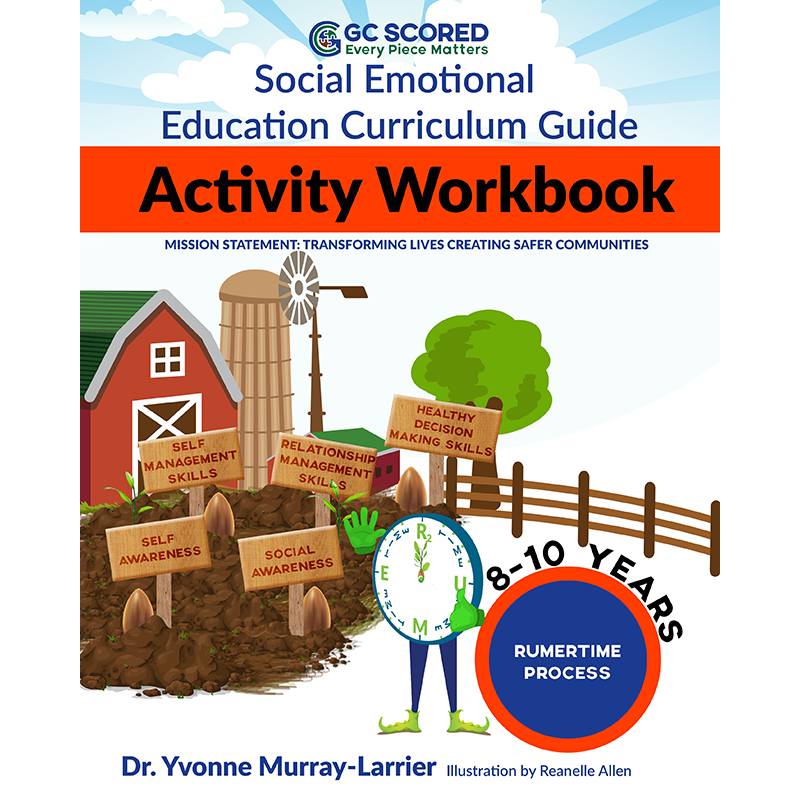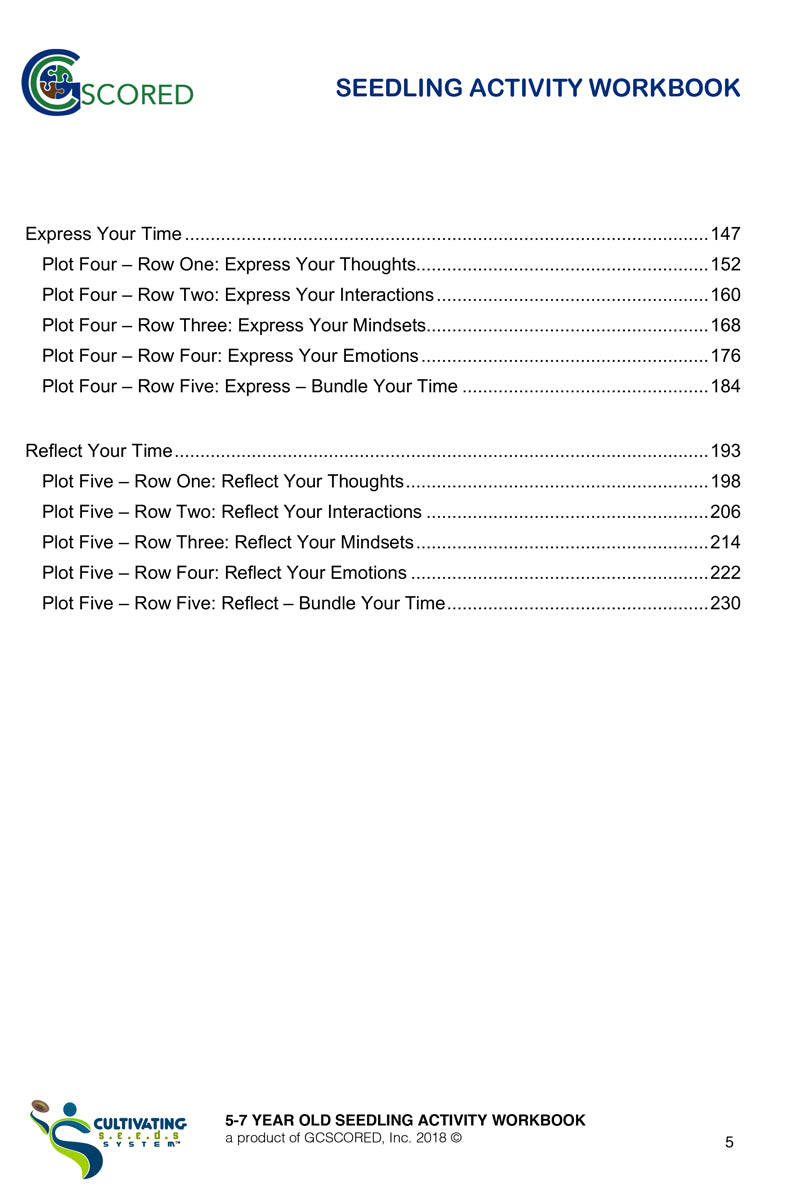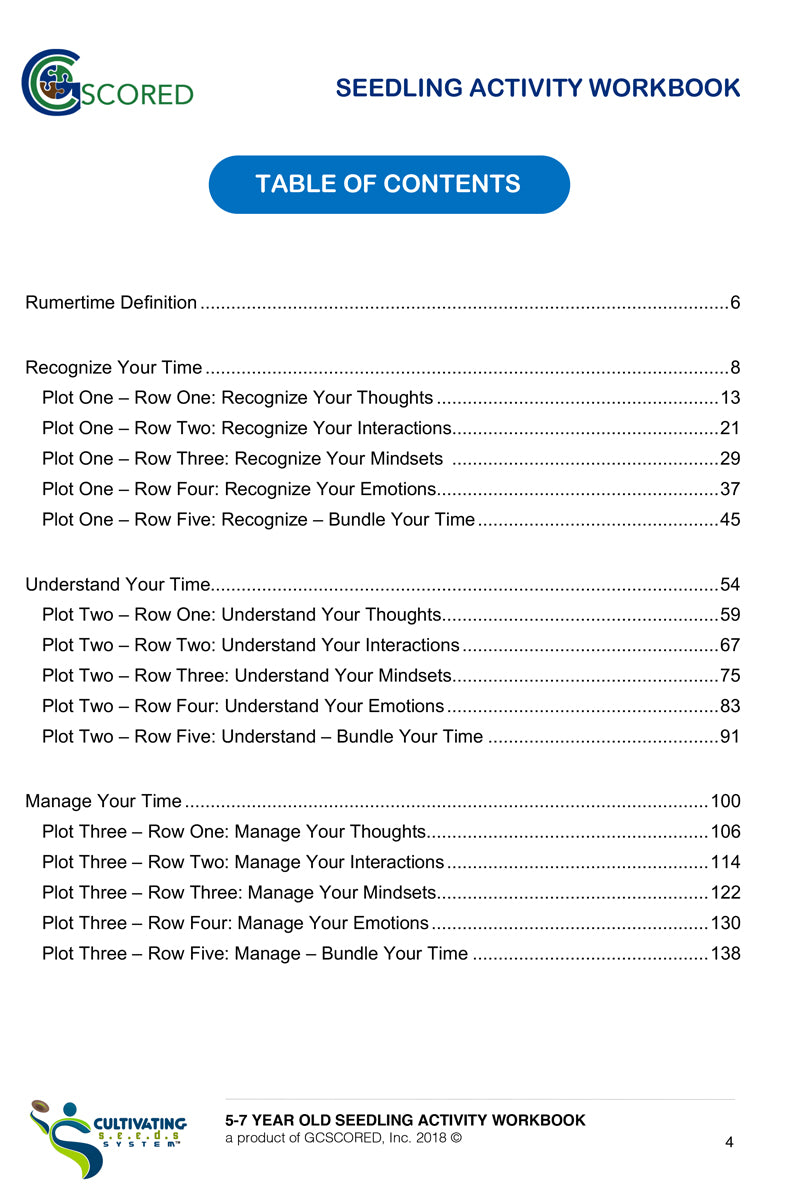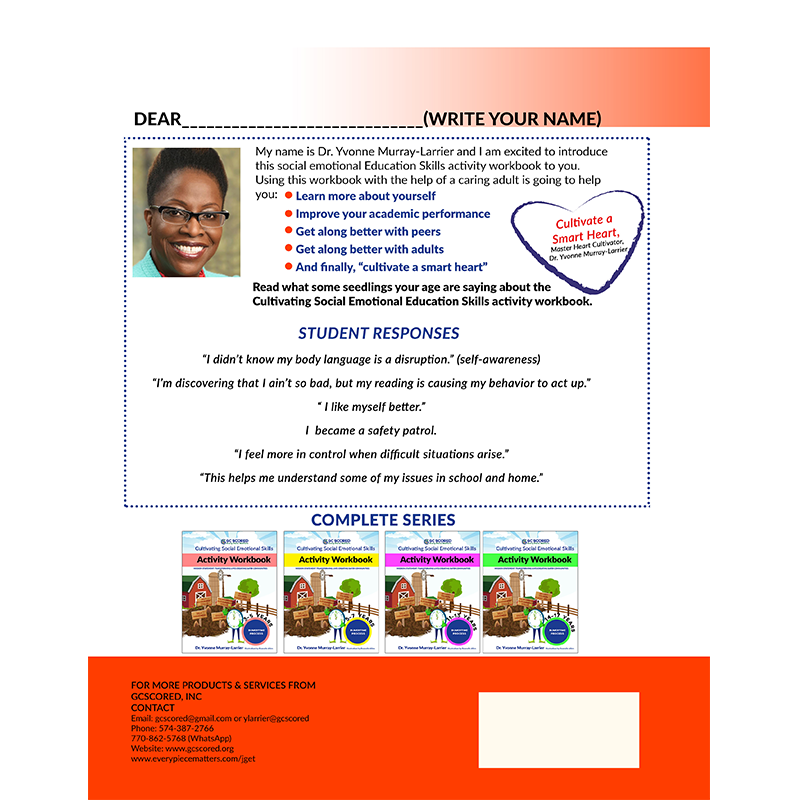GCSCORED
Student Activity Workbook (8-10yrs)
Student Activity Workbook (8-10yrs)
Couldn't load pickup availability
SKILLS FOR CIVIL SOCIETY
We have traditionally assumed that we all want to live in a civil society; yet we now live in a society where that assumption is really being called into question. Many of us are taken aback by the increasing incivility of our society. It is present in all sectors and cultures of our society and infects all our public modes of interaction and communication – print, radio, TV, and the internet. There seem to be no sacred public spaces or times anymore. Things that we once held dear are now treated as trivial, relationships are disposable, our interactions with each other are too often caustic and crass, and our tolerance for the intolerable and normalizing of incivility seems to be without limits and boundaries.
That this is happening in a society that prides itself as being the most advanced in all of human history in knowledge, science, and technology, should be undeniable evidence that a civil society requires more than just the basics of reading, writing and counting. An increase in knowledge and information is not a prerequisite for being civil to each other. Remarkably, we have literally at our fingertips in our smartphones knowledge and information about the past, yet every single day around the world, in one way or another, we repeat the same incivilities to each other.
I believe that what is missing are the fundamental skills needed to become our best selves and to live our best lives with others. These skills are defined as social-emotional skills. They are fundamental and foundational to creating a civil society at all its levels of social organization – personal relationships, families, school, business, church, national, and international. Everyone at every age in every culture or country, regardless of its ranking on the human development index needs social-emotional skills to create and contribute to a civil society.
From my studies – academic and experiential – in this field, I have created a five step, psychosocial problem-solving strategy called the RUMERTIME ProcessTM to provide everyone at every age with the social-emotional skills needed to build civility into all aspects of our lives and into all our relationships. RUMERTIMETM is an acronym for Recognizing, Understanding, Managing, Expressing, and Reflecting our Thoughts, Interactions, Mindsets and Emotions. I believe that full engagement with this process in our lives will allow us to become our best selves and to live and function positively and productively in relationships and community.
Recognize and Understand – What are the essential elements for being civil?
Manage and Express – How do I use my TIME (thoughts, interactions, mindsets and emotions) to relate to myself, others, and situations?
Reflect – How well did I do relating to myself, others and situations?
RUMERTIMETM is not a magic act or a mystical trip. It is not a one-time trick or one-off deal. It requires tenacity and patience; it requires that you stay the course, whether you are teaching it to others or applying it to yourself. Just as it takes time, process, and nurturing for a seed to become what it is meant to be, so too there is a time and season for personal growth, blossoming, and bearing fruit. A civil society cannot be built in a day; it cannot be speed-dialed into existence.
Dr. Yvonne Murray-Larrier
Sower and Life Long Rumerizer
DETAILS
The RUMERTIME Process™ is a five-step psychosocial problem-solving strategy that helps Seedlings move from intra and interpersonal imbalance to intra and interpersonal balance. As you RUMERIZE your Thoughts, Interactions, Mindsets, and Emotions (TIME™) you become self-aware, socially aware and skillful as you relate to, and successfully navigate self, others and situations at home, school, work, and play.
A Seedling’s ability to recognize, understand, manage, express and reflect upon the social and emotional aspects of his or her life in ways that enable the Seedling to successfully relate to self and others while effectively navigating life tasks, milestones, challenges and changes.
These are the five core social emotional competencies (SECs): Self-Awareness Self-Management Relationship Management Social Awareness Responsible Decision Management.
ABOUT THE AUTHOR
Dr. Yvonne Murray-Larrier LPC, NCC, NCSC, EAS-C is an Associate Professor and department chair of the Counseling & Human Services Department at Indiana University South Bend (IUSB). She has over 30 years’ experience as a social worker, professional school counselor, licensed professional counselor, mental health therapist, employee assistant specialist-clinician, and counselor educator. She is a Licensed Professional Counselor (LPC), National Certified School Counselor (NCSC) and a National Certified Counselor (NCC). She is an active member of numerous professional organizations, including the American Counseling Association, American School Counseling Association and the Mental Health Innovation Network(MHIN). As founding president of her non-profit organization, GCSCORED, Inc. (https://everypiecematters.com/), and founding editor of the Journal of Global Engagement and Transformation (https://everypiecematters.com/jget) , Dr. Murray-Larrier is a global change agent for marginalized, voiceless, and invisible children, youth, and communities.
Share




"As a scholar engaged in the practice of metaphor analysis to better comprehend the ways our language creates a window into our overarching conceptualizations of the world, I am particularly fascinated by Dr. Larrier’s strategic use of agricultural metaphor to represent the underlying assumptions and expectations for development, growth, and progress through the Cultivating SEEDS System™."
- Hope smith
Subscribe to our emails
Be the first to know about new collections and exclusive offers.




